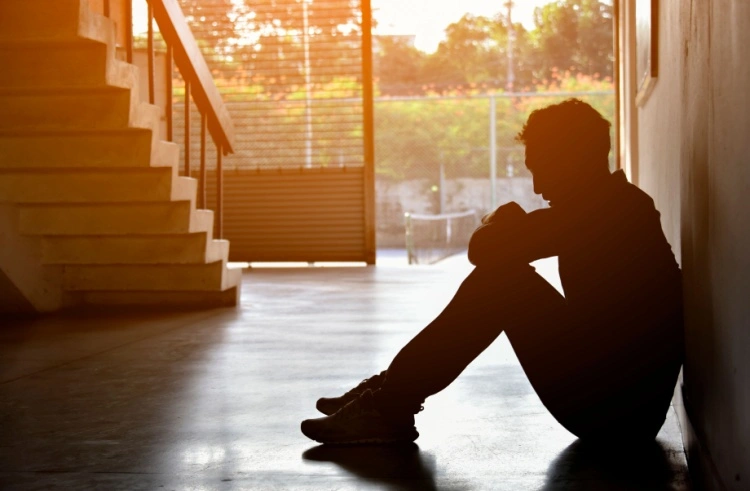Quick Facts on Depressive Disorders
- Prevalence of depressive disorders: As many as one in five adults
- Types of depressive disorders: Major depressive disorder, persistent depressive disorder, seasonal affective disorder, postpartum depression, psychotic depression, atypical depression
- Related disorders: Anxiety disorders, bipolar disorder, personality disorders, psychotic disorders
- Who is affected by depressive disorders? Adults, children, adolescents, and teens
- Symptoms of depressive disorders: Feelings of sadness, emptiness, and worthlessness, sleep disturbances, low self-esteem, eating less or more, irritability, angry outbursts, crying spells, loss of interest in usual activities
- Long-term effects of depressive disorders: Worsening of depressive symptoms, a lack of quality relationships, a strained family life, development of physical conditions or illness, loss of employment or financial strain, increased risk of suicide
- Treatment options for depressive disorders: Residential treatment, talk therapy, antidepressant medications, outpatient treatment, case management, behavioral therapy
Types of Depressive Disorders
There are several different types of depressive disorders that we treat at Mark Behavioral Health, in addition to other mental health disorders.
Major Depressive Disorder (Depression)
Major depressive disorder, sometimes referred to as clinical depression or major depression, is the most common type of depressive disorder in the United States.
Major depression affects people of all ages and from all walks of life, with different symptoms and varying levels of intensity.
To be diagnosed with major depressive disorder, a person must exhibit as least 5 of the symptoms of depression for at least 2 weeks, as outlined by the Diagnostic and Statistical Manual of Mental Illnesses (DSM-5).
These symptoms include:
- Irritability
- Lashing out at loved ones
- Difficulty concentrating or focusing
- Feelings of hopelessness or guilt
- Social withdrawal
- Excessive sleep
- Suicidal thoughts
Someone can have different symptoms than these or additional symptoms, but they must have at least five for an official diagnosis.
Persistent Depressive Disorder
Persistent depressive disorder, also known as dysthymia, is a type of prolonged depression that can last for several years.
The signs and symptoms of persistent depressive disorder are not always consistent and can disappear for up to a couple of months, but the person is generally always unhappy, in a depressed mood, and with a negative outlook on life.
This type of depression often goes undiagnosed as its symptoms, such as gloominess and pessimism, are usually perceived as personality traits as opposed to a chronic mental illness.
Other Depressive Disorders
In addition to major depressive and persistent depressive disorder, there are other depressive disorders that apply to more specific situations and symptoms.
Other depressive disorders include:
- Postpartum depression: this type of depression occurs in pregnant women shortly after giving birth and can last up to three years afterward.
- Seasonal affective disorder: a type of depression associated with the changing of the seasons and particularly with a lack of sunlight hours during winter months.
- Situational depression: a form of depression that is considered short-term or temporary and is the result of experiencing a specific loss or trauma.
- Bipolar disorder: this type of depression can be classified as both a depressive disorder and a mood disorder, and is characterized by extreme fluctuations in a person’s mood and resulting behaviors.
- Psychotic depression disorder: someone with this disorder may have depressive episodes that are so severe that they exhibit signs of psychosis, such as a confused state, irrational thoughts, delusions, and hallucinations.
- Premenstrual dysphoric disorder (PMDD): a type of depression that coincides with a woman’s hormonal cycle and is considered to be an extreme form of premenstrual syndrome (PMS) that only about 5% of women experience.
- Atypical depression: a very common type of depression which is characterized by a person’s ability to take on positive emotions and actions after experiencing positive events or situations.
What Causes Depressive Disorders?
There is no single cause or causes of depression, and more research is always needed and being done on this subject.
Most research has found that there are generally two categories that causes for depressive disorders fall into, those that are genetic and those that are environmental.
Risk Factors for Depressive Disorders
Some risk factors for depression are out of a person’s control, such as their genes and gender, while others involve lifestyle choices that can be addressed to reduce the risk of developing depression.
Risk factors for depressive disorders include:
- Family history of depression
- Recent loss or trauma
- Stressful life events
- A poor diet
- Lack of exercise or movement
- Substance abuse or an existing substance use disorder
- Being female
- Having a chronic medical condition or chronic pain
Symptoms of Depressive Disorders
The symptoms of depressive disorders can vary a lot in intensity and can also come and go over time.
People may have a hard time recognizing or acknowledging the emotional or physical symptoms of depression in themselves, which is why it is helpful to know the signs to look for in our loved ones.
Symptoms of depressive disorders include:
- Feeling sad or hopeless without a clear reason
- Crying frequently
- Feeling angry or irritable
- Loss of appetite
- Weight loss or weight gain
- Sleeping a lot more or less than usual
- Daytime sleepiness
- Memory problems
- Trouble focusing or concentrating
- Difficulty making decisions
- Restlessness
- Loss of interest in activities or hobbies
- Isolation or withdrawal
- Talking about or thoughts of death, suicide, or self-harm
Effects of Untreated Depressive Disorders
When depressive disorders are left untreated, a person may find that they start to lose interest or productivity in many areas of their life.
At this point, they may find it difficult to maintain their former responsibilities.
Side effects of untreated depressive disorders include:
- Loss of work or relationships
- Family conflicts
- Physical health problems, like heart disease
- Substance abuse problems
- Loss of enjoyment in life
- Suicide or suicide attempts
Getting Treatment for Depressive Disorders at Mark Behavioral Health
You can find the following treatments for depression at Mark Behavioral Health, utilizing evidence-based practices to promote positive outcomes.
Residential Treatment
The primary service that we offer at Mark Behavioral Health for treating depression and other mental health disorders is residential inpatient treatment.
The length of stay will depend on your needs, and treatment plans are always customized for each person.
During a residential stay, you will live onsite with others who are also in treatment. You will participate in individual treatments and support groups that allow you to interact with others and share your stories.
Crisis Stabilization
Some people who come to us are in need of crisis stabilization before they can begin residential treatment, as a way to return to a healthier mental state before continuing with treatment.
These services help you to get stable in a less intensive environment than would be found in a hospital and without the need for law enforcement involvement.
Behavioral Therapy
Mark Behavioral Health offers both cognitive behavioral therapy (CBT) and dialectical behavior therapy (DBT), which are some of the most effective therapies for many mental health disorders.
These therapies can aid you in understanding your emotions and how to manage and regulate them in healthier and more productive ways.
Trauma-Informed Therapy
Trauma-informed care is an integral part of our therapies and treatments at Mark Behavioral Health, especially for individuals who have experienced sexual trauma or abuse.
This approach to therapy and care takes on an understanding of your history and past trauma in a way that allows providers to treat you more directly and compassionately.
Therapy to Address Grief & Loss
Everyone faces grief at one point or another in life, and grief or bereavement therapy can help you learn to manage and cope with your losses.
Our grief and loss therapy is available to all residential clients of our facility, and is available with a trauma-informed care approach as well.
Specialized Wellness Services
Our specialized wellness services focus on the overall well-being of our clients through workshops and various holistic treatments.
Through these wellness services, residents are encouraged to eat well and move their bodies, as nutrition and fitness can both have huge impacts on a person’s mental health.
Top Resources for People Facing Depression
There are several resources available to people living with depression who are seeking information, advocacy, or help in finding treatment nearby.
Top resources for people facing depression include:
For additional resources locally, you can also speak with your primary care physician or another health care provider that you trust.
Get Specialized Treatment for Major Depressive Disorders in Florida
Please reach out to Mark Behavioral Health if you have questions about mental disorders or are in need of residential mental health treatment for yourself or a family member.
We provide services to a wide range of areas in South Florida, and we are dedicated to helping people improve their mental health and feel good again.
No matter what you are going through in life right now, we would love to be the ones to help you or your loved one get back on your feet.
Contact us now to learn more about the highly targeted mental health care we provide.


